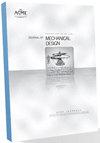不同的初始样本是如何帮助和损害贝叶斯优化的
IF 3
3区 工程技术
Q2 ENGINEERING, MECHANICAL
引用次数: 0
摘要
设计研究人员一直在努力做出定量预测,以准确地说明多样性为何以及何时可能有助于或阻碍设计搜索工作。本文通过研究一种普遍使用的搜索策略——贝叶斯优化(BO)——来解决这个问题,该策略适用于难度可修改的2D测试问题。具体来说,我们测试了向BO提供多样化与非多样化初始样本如何影响其在搜索过程中的性能,并引入了一种快速DPP采样方法,用于计算多样化集,以检测高度多样化或非多样化初始样本集。一开始,我们惊奇地发现,多样性并没有影响到BO,既没有帮助也没有损害它的趋同。然而,后续实验揭示了一种权衡。非多样化的初始样本加速了潜在模型超参数的后验收敛——这是模型构建的优势。相比之下,不同的初始样本加速了对函数本身的探索——这是太空探索的一个优势。这两种优势都有助于BO,但方式不同,初始样本多样性调节了BO如何利用这些优势。我们表明,固定BO超参数消除了模型构建的优势,导致不同的初始样本总是优于使用非不同样本训练的模型。这些发现揭示了为什么,至少对于BO类型的优化器来说,多样性的使用会产生混合效果,并对BO中普遍使用的空间填充初始化提出了警告。在某种程度上,人类使用类似于BO的探索-利用搜索策略,我们的结果提供了一个可测试的猜想,即多样性为何以及何时会影响人类受试者或设计团队的实验。本文章由计算机程序翻译,如有差异,请以英文原文为准。
How Diverse Initial Samples Help and Hurt Bayesian Optimizers
Design researchers have struggled to produce quantitative predictions for exactly why and when diversity might help or hinder design search efforts. This paper addresses that problem by studying one ubiquitously used search strategy -- Bayesian Optimization (BO) -- on a 2D test problem with modifiable difficulty. Specifically, we test how providing diverse versus non-diverse initial samples to BO affects its performance during search and introduce a fast DPP sampling method for computing diverse sets to detect sets of highly diverse or non-diverse initial samples. We initially found, to our surprise, that diversity did not affect BO, neither helping nor hurting its convergence. However, follow-on experiments illuminated a trade-off. Non-diverse initial samples hastened posterior convergence for the underlying model hyper-parameters -- a Model Building advantage. In contrast, diverse initial samples accelerated exploring the function itself -- a Space Exploration advantage. Both advantages help BO, but in different ways, and the initial sample diversity modulates how BO trades those advantages. We show that fixing the BO hyper-parameters removes the Model Building advantage, causing diverse initial samples to always outperform models trained with non-diverse samples. These findings shed light on why, at least for BO-type optimizers, the use of diversity has mixed effects and cautions against the ubiquitous use of space-filling initializations in BO. To the extent that humans use explore-exploit search strategies similar to BO, our results provide a testable conjecture for why and when diversity may affect human-subject or design team experiments.
求助全文
通过发布文献求助,成功后即可免费获取论文全文。
去求助
来源期刊

Journal of Mechanical Design
工程技术-工程:机械
CiteScore
8.00
自引率
18.20%
发文量
139
审稿时长
3.9 months
期刊介绍:
The Journal of Mechanical Design (JMD) serves the broad design community as the venue for scholarly, archival research in all aspects of the design activity with emphasis on design synthesis. JMD has traditionally served the ASME Design Engineering Division and its technical committees, but it welcomes contributions from all areas of design with emphasis on synthesis. JMD communicates original contributions, primarily in the form of research articles of considerable depth, but also technical briefs, design innovation papers, book reviews, and editorials.
Scope: The Journal of Mechanical Design (JMD) serves the broad design community as the venue for scholarly, archival research in all aspects of the design activity with emphasis on design synthesis. JMD has traditionally served the ASME Design Engineering Division and its technical committees, but it welcomes contributions from all areas of design with emphasis on synthesis. JMD communicates original contributions, primarily in the form of research articles of considerable depth, but also technical briefs, design innovation papers, book reviews, and editorials.
 求助内容:
求助内容: 应助结果提醒方式:
应助结果提醒方式:


